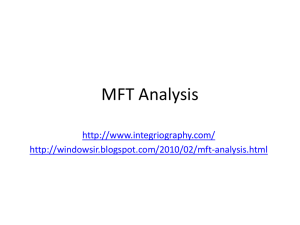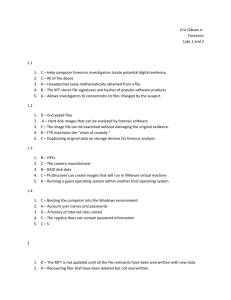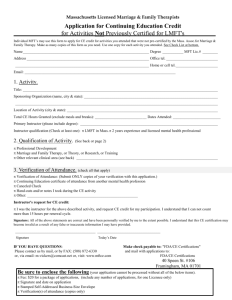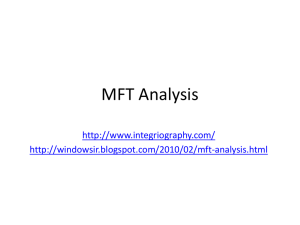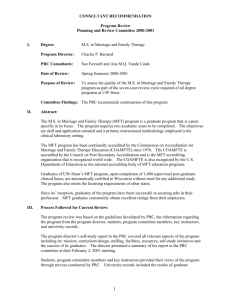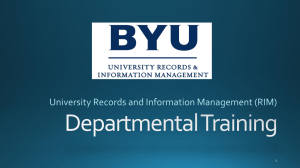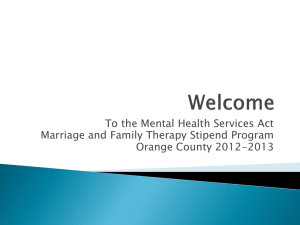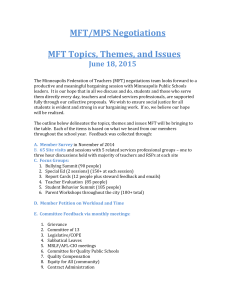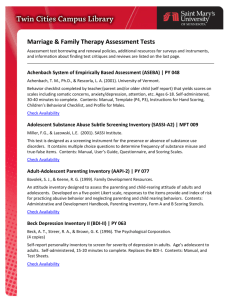2014 BYU MFT QA Powerpoint - Marriage & Family Therapy
advertisement
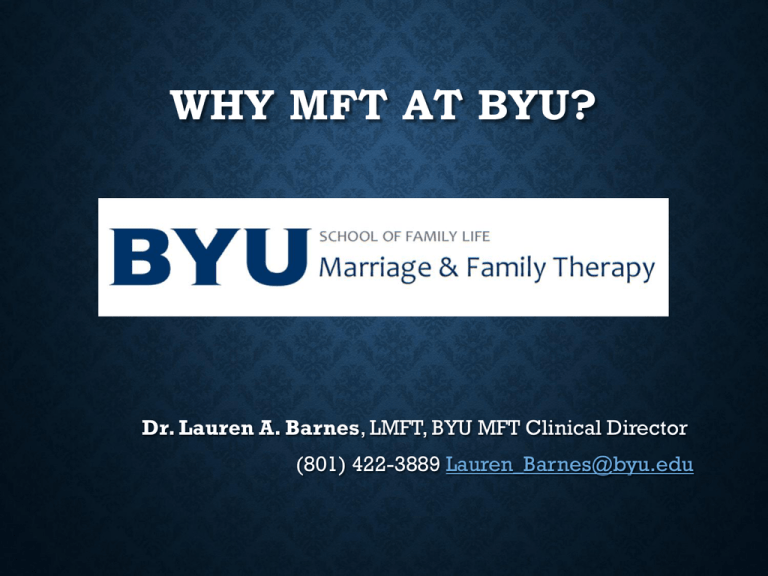
WHY MFT AT BYU? Dr. Lauren A. Barnes, LMFT, BYU MFT Clinical Director (801) 422-3889 Lauren_Barnes@byu.edu WHAT IS MARRIAGE AND FAMILY THERAPY? • One of 6 mental health professions: • Psychiatry • Psychology • Social Work • Marriage and Family Therapy • Psychiatric Nursing • Mental Health/Professional Counselors WHAT MAKES MFT UNIQUE? • A family's patterns of behavior influences the individual and therefore may need to be a part of the treatment plan. In marriage and family therapy, the unit of treatment isn't just the person - even if only a single person is interviewed - it is the set of relationships in which the person is imbedded. WHAT IS MFT? • Talk therapy—psychotherapy • Specific, with attainable therapeutic goals • Relationally focused • Usually short term (12 sessions on average) • Can involve individuals, couples, or families MFT IS EFFECTIVE • Research indicates that marriage and family therapy is as effective, and in some cases more effective than standard and/or individual treatments for many mental health problems such as: adult schizophrenia, affective (mood) disorders, adult alcoholism and drug abuse, children's conduct disorders, adolescent drug abuse, anorexia in young adult women, childhood autism, chronic physical illness in adults and children, and marital distress and conflict. WHY PICK MFT? • Interest in families • Want to work in helping professions • Love learning about family dynamics • Pull towards systemic thinking • Interest in micro-level changes • Want a focus on clinical training • Want to learn about self/own family WHAT DOES IT TAKE TO BECOME A LICENSED MFT? • Graduation from a graduate MFT program • Post degree experience (approx. 2 years) • Supervision of therapy • Pass the license exam • Turn in application • Renew licensure regularly (CEUs) • Licensure varies by state WHAT DO LICENSED MFT’S DO? • Clinical work in the following settings: • Community mental health centers • Hospitals • University/school settings • Residential Treatment Centers • Wilderness Therapy Programs • Private Practice WHY MFT AT BYU? • Well established (began training MFTs in 1967) • Well respected (graduates sought after) • Clear path to licensure (all graduates have passed license exam when taken) • National Research recognition • MS and PhD programs • Nine experienced faculty (one of the largest faculty in the country) WHY MFT AT BYU? • Stable, generous student financial assistance • Diverse student employment opportunities • Comprehensive Clinic • Solid clinical training • Exciting research opportunities • Great preparation for PhD program WHY MFT AT BYU? • Training for mind and soul • Growing diverse/international community • Academic excellence across the board • Mentoring/teaching opportunities • Strong, stable financial backing in tough economic times WHAT FACTORS ARE WEIGH HEAVILY IN ADMISSIONS DECISIONS? • Letters of Recommendation • GPA (especially last 60 credits) • GRE scores • Experience – (1) Research and (2) Human services, clinical setting • Face to face interview FINANCIAL SUPPORT • MS Students • 10 hour/week assistantship • ¼ tuition scholarship • Other scholarships available (e.g. research, college) • AmeriCorps Education Award Opportunity • PhD Students • 20 hour/week assistantship • Full tuition scholarship • AmeriCorps Education Award Opportunity WHAT QUESTIONS DO YOU HAVE? Program Secretaries: Kayla & Jacey mftptsec@byu.edu Clinical Director: Dr. Lauren A. Barnes Lauren_Barnes@byu.edu Program Director: Dr. Roy A Bean Roy_Bean@byu.edu
